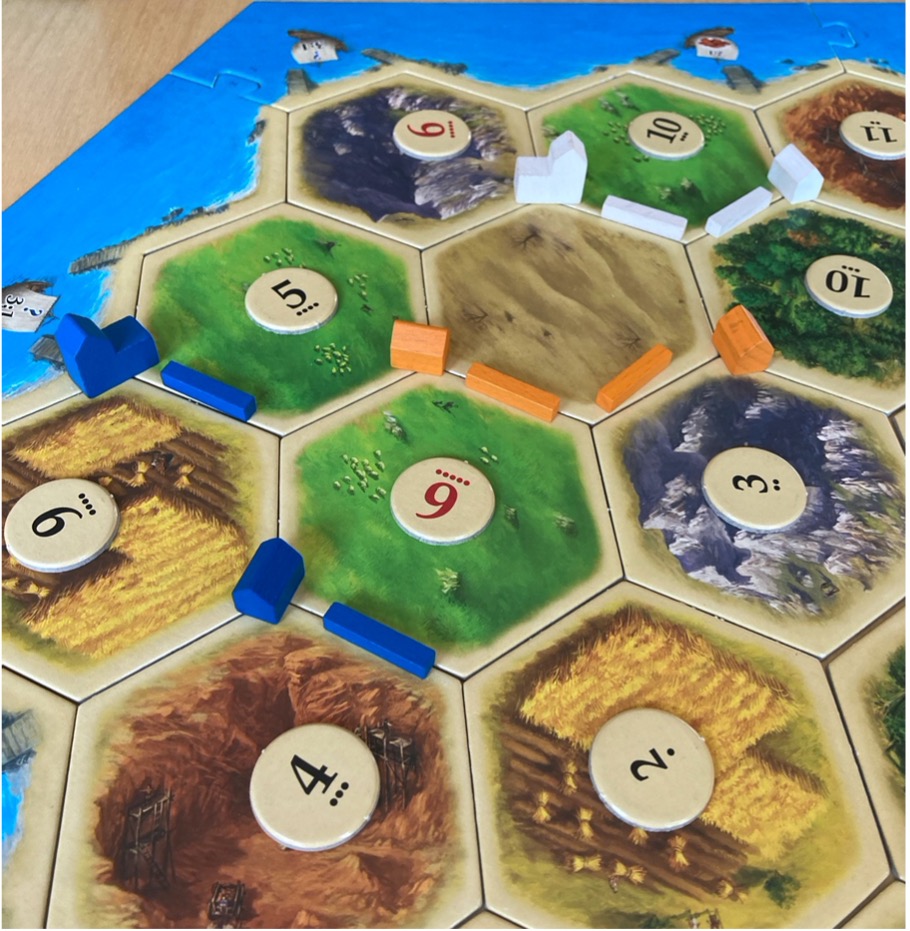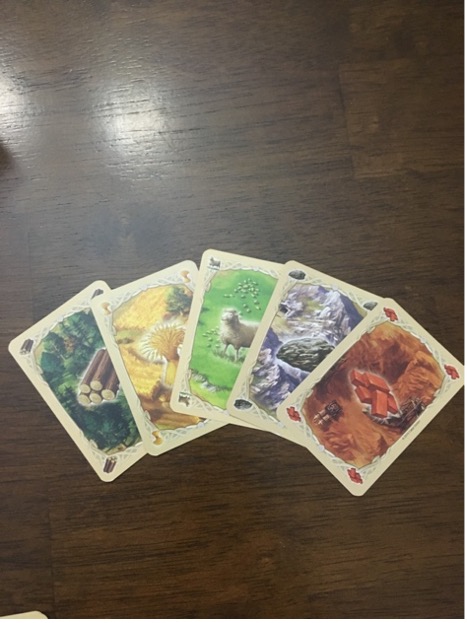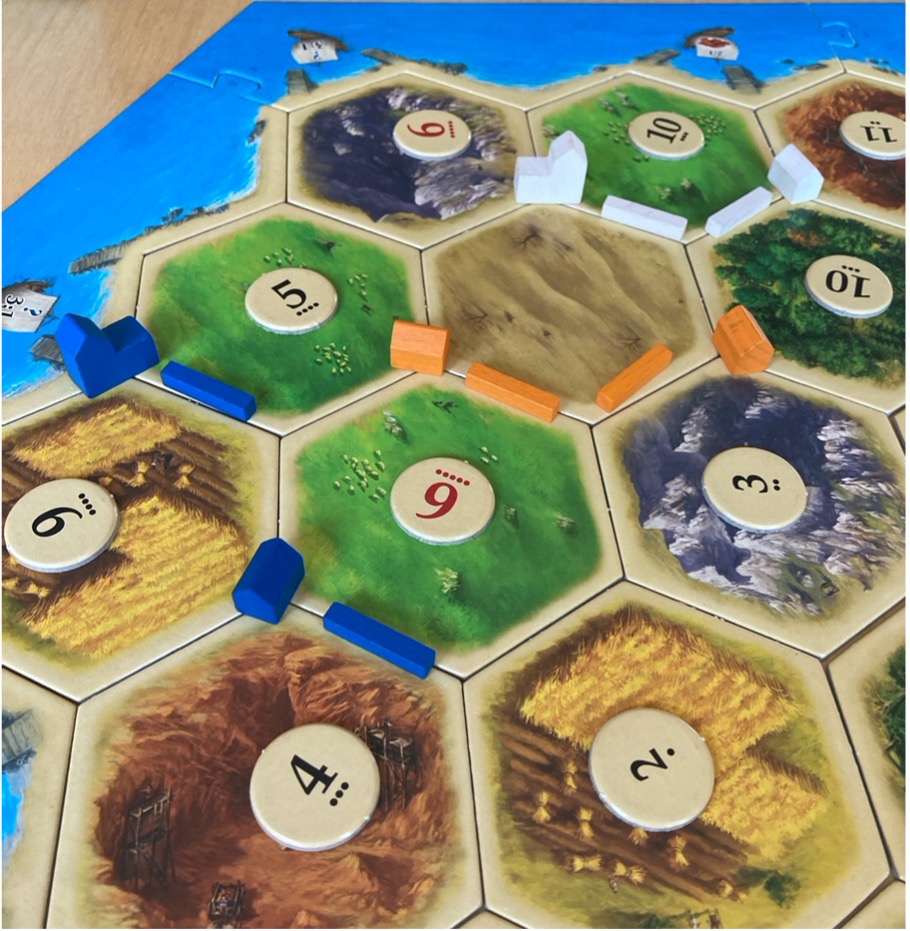Can Intellectual Property Protect Board Games?
I love board games and have been playing a lot of Settlers of Catan online during the pandemic. I use a site called colonist.io, which is an offshoot, unaffiliated version of the Settlers of Catan game. During my Intellectual Property (IP) class with Professor Ho earlier this year, I wondered how IP rights extend to board games. When we tend to think of IP, we might think of cool technological inventions for patents or Disney’s Mickey Mouse for copyright. IP generally relates to protecting human created products, names, and expressions, and can give its owner rights to protect these.
So, I wondered: what type of IP law can protect boardgames? And if there are IP rights protecting boardgames, such as Settlers of Catan, does the colonist.io site violate some of the Settlers of Catan IP rights? For example, perhaps the creator of Settlers of Catan, Klaus Teuber, has some protection in the design of the game or the concept of the game itself.
To answer this, I decided to review each of the major areas of IP we had learned in class. There are three major categories: patents, copyrights, and trademarks. Each one can offer different types of protection for board games.

Patent Protection: The greatest way to protect your game, for a short period of time
Patents offer the most exclusive protection among the types of IP. Patents grant the owner the ability to exclude all others from producing the patented product for a certain period of time. Owners need to file for a patent and meet the high bar for obtaining a patent in order to have their boardgame protected, and patents only last for roughly 20 years after filing.
Because patents provide powerful protection, the bar to receiving a patent is high. Specifically for a board game, the creator would need to identify the patentable material – what part of the board game is new or novel and unique – before filing. Several game owners have done this successfully, including Jenga, Chess, Scrabble, and Mouse Trap.
Patent law can protect aspects of board games, but only if the owner is able to convince the United States Patent and Trademark Office (USPTO) that some part(s) of their game meet patentability requirements. Among these requirements are that the invention must be novel and also not obvious. For example, a game that features dice rolling to have pieces move is not unique and that component would therefore not qualify for a patent. Additionally, obtaining patents is costly and requires filing.
Timeless Trademarks: Protection of your game forever
Unlike patents, owners do not need to register for a trademark to get trademark protection. That said, filing for federal registration does provide broader protection, like the assumption that your trademark is valid during litigation. Trademarks only exist for goods or services used in commerce that serve to identify their source. Company names, slogans, logos, sounds, or smells are all examples of trademarkable things. Common trademarks we may think of are the logos and names for brands like Coca-Cola or Apple.
Board games can thus trademark their names, logos, or slogans, as long as they are used in commerce and serve to identify and distinguish those games from others. For example, Hasbro has federally registered the name “Monopoly” as a trademark for its board game. Teuber, creator of Settlers of Catan, federally registered its name as well.
Trademarks can also protect aspects of boardgames even if its creator did not register for a trademark. In order to have an enforceable federal right as a boardgame owner for an unregistered mark, the name of the board game needs to be distinctive and identify or distinguish parts of the game from others in the market. So, if the board game has a distinct name that consumers associate with the game, then the owner may still be afforded trademark protection, even though they did not register for a trademark.
Generally, though, board game owners register for trademarks and ensure that their trademarks are renewed when needed to maximize protection against others in terms of evidentiary presumptions in litigation. Trademarks, after all, can grant them indefinite protection.
Creative Copyrights: Rights in the design of your game
A copyright provides protection for original works of authorship that are fixed in a tangible medium of expression so long as there is minimal creativity. Common examples include books, movies, or drawings. Accordingly, board games have protection in the look or design of their product since a game is a type of expression that is fixed. For example, Teuber protects the Settlers of Catan designs for the gameboard and design for different resources (wheat, ore, sheep, brick, and wood). Similarly, Hasbro can protect the design of the gameboard and the look of their Chance and Community Chest cards.
However, copyrights do not protect the idea or method of something. This concept dates back to a case from the late 1800s, Baker v. Selden, where the Supreme Court found that ideas or methods found in a book could not receive copyright protection. Only the actual description of the method in the book itself was eligible for copyright protection.
Applied to board games, the idea of a board game, no matter how complex or distinct, does not receive copyright protection. While the look of Settlers of Catan’s Resource Cards receives copyright protection, the use of wheat, ore, sheep, brick, and wood as resources cannot receive copyright protection.
Copyright protects the design of a game. This includes the design of its pieces, the board, the cards, and any other component. However, it does not protect the actual gameplay or concepts of the game.
Infringing on Fun: Does Colonist.io violate any IP protection of Settlers of Catan?
Settlers of Catan was first produced in 1995, so even if Teuber filed a patent, the 20 year expiration date is over at this point. Thus, colonist.io is not violating patent law through their offshoot game even if Settlers of Catan had something patented. It is possible that Teuber added more patentable additions to the original game since 1995, and in that case the patent could still exist and be violated.
Colonist.io has a different name than the original game Settlers of Catan. The creator even has a disclaimer on their site that says: “The web game Colonist.io has no association with the board game Settlers of Catan.” This may help protect them from any trademark infringement claims since a trademark is only violated if there is likely consumer confusion.
Additionally, the symbols and materials on colonist.io are slightly different to Settlers of Catan. The fact that their symbols and game set up looks slightly different helps consumers know that the sites are unrelated and therefore can help protect colonist.io from trademark infringement. This coupled with the disclaimer on Colonists’ site as well as the difference in names helps protect against trademark infringement. However, the ultimate question for trademark infringement is how likely consumers are to be confused and associate the products with one another. While disclaimers and different design help with likelihood of confusion, it is still possible that trademark infringement exists in this case.


Lastly, we need to look at copyright law and whether colonist.io may be infringing on the design elements of Settlers of Catan. Although they use the same resources – ore, wheat, sheep, brick, and wood – they have different designs for each resource and for the game board. However, they do use similar colors. For example, wheat is yellow in both versions of the game and brick is a reddish brown. But, the similarity in color might not be enough to constitute similar design. As wheat is generally a yellow color, Settlers of Catan cannot have a copyright on something so common. Since the designs are different, there is likely no copyright infringement either. However, a full analysis of copyright law might lead to a different conclusion and is outside the scope of this post.
As ideas or concepts cannot be protected, colonist.io’s use of the idea of Settlers of Catan is not infringing on anything from the original game. While colonist.io uses the same types of resources, the design of each resource is different.
Conclusion
Although colonist.io took steps to protect itself from getting sued for trademark or copyright infringement, these inquiries are very fact specific and it’s possible a judge could find infringement present based on the similar colors of the resources used, the similar shape of the game board, etc.
Fortunately for people like me who love using colonist.io, the site thus far has not been found to infringe on any IP rights of Settlers of Catan! I can continue to build settlements and cities guilt free.

Ariel Katz
Associate Blogger
Loyola University Chicago School of Law, J.D. 2022
